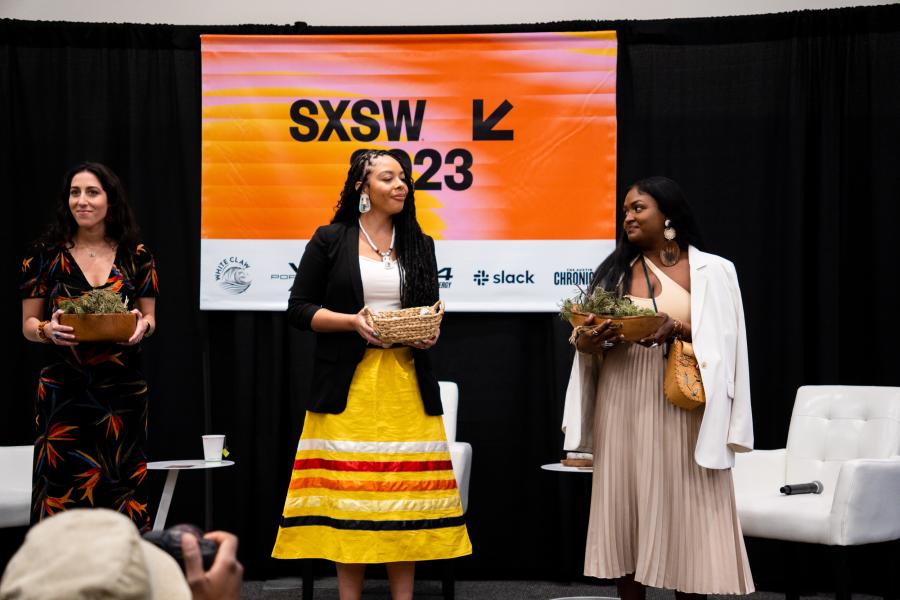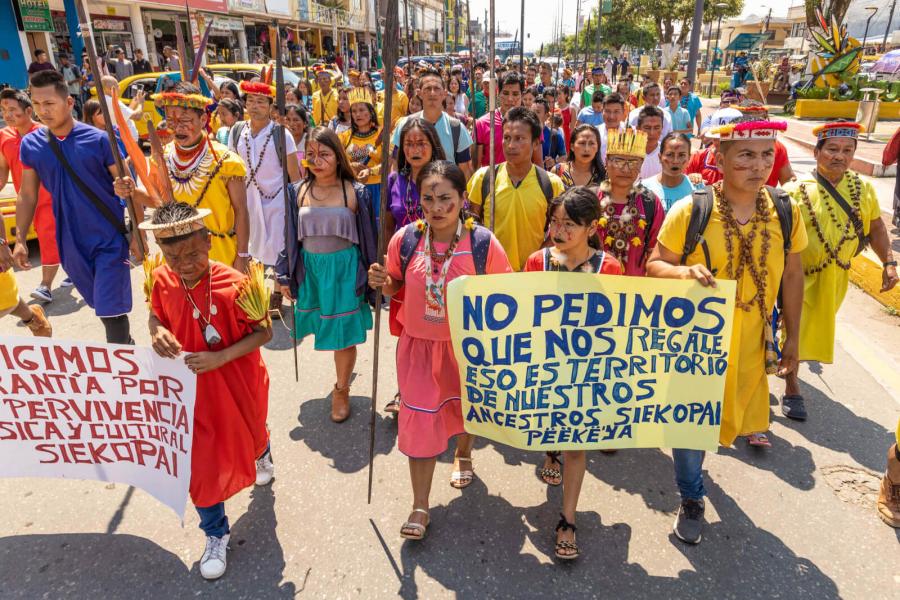
By Carolyn Smith-Morris and Danielle DeLuca
The COVID-19 coronavirus, a global pandemic, has prompted new restrictions on the movement and gathering of people. Necessary preventive measures to reduce the global scale of infection, these restrictions already include cancelled flights and travel bans, new government guidelines for gatherings of people (e.g., going from restrictions on events of 1000, to those of 250 or more, and most recently of more than 10), and cleaning and disinfection of environments where persons with COVID-19 may have been.
Indigenous Peoples are among the most vulnerable to this pandemic for a number of reasons. First, the geographic and community features of rural and remote Indigenous communities, along with conditions of economic and food insecurity and marginalization from services, can make them more vulnerable. For example, Assembly of First Nations National Chief Perry Bellegarde said that “Many Inuit and First Nations residents in remote communities have no hospitals and can only get health care by flying to urban centres. Indigenous residents of fly-in communities and those at higher risk of infection must remain top of mind.” Although most who are infected with this virus will experience mild or flu-like symptoms, the elderly and immuno-compromised will require urgent and intensive respiratory care.
The high vulnerability of Indigenous elders is a factor not only of their frailty and age, but also of their particular roles in Indigenous societies and families. Often living within inter-generational homes, elders cannot easily isolate themselves from other family members who may be exposed (but less vulnerable) to COVID. If inter-generational homes are crowded, shared infection will be more likely and rapid. Elders often play key roles in community gatherings, whether dances, healing ceremonies, or governance; restricting elder access to these critical functions of society will become increasingly difficult as the pandemic stretches on. With threats to their elders, who are often the last remaining bastions of deep traditional knowledge and the last fluent Indigenous language speakers in their communities, cultural, linguistic, and scientific knowledge is also at stake.
Meanwhile, communities in the global south have denounced the class privilege evident in the recommendations made by health officials to prevent the spread of the virus. “The romanticizing of quarantine is class privilege” displayed a spray painted sign in a meme shared on social media by an artist from Colombia. Indeed, working from home, or choosing to not work, is a luxury not afforded to many who without work cannot provide food for their families. Measures taken by governments to avoid the spread of the virus, including closing public transportation in Guatemala, reduce Indigenous people’s access to paying jobs, to food, and to health care. As well, for many Indigenous communities, access to clean running water for frequent hand-washing is scarce. This is the case for the Maya Ch’orti’ in Honduras and eastern Guatemala, who are experiencing climate-change induced drought that has led to extreme crises of malnutrition and poverty.
On the international level, mechanisms of global oversight for Indigenous rights implementation have been disrupted. Major conferences and gatherings essential to protection and oversight of Indigenous rights implementation have already been delayed, such as the 2020 (19th) session of the United Nations Permanent Forum on Indigenous Issues. The UN Secretary General Antonio Guterrez called for all UN meetings to be cancelled or postponed including those mandated to monitor and record human rights violations, including the UN Human Rights Council, and sessions of treaty body committees. Travel of special procedures such as the UN Special Rapporteur on the rights of Indigenous Peoples will be affected by border closures and travel bans. In just one example, the UN Subcommittee on Prevention of Torture has suspended its visit to Argentina, despite cases of reported torture from Mapuche communities). Other local gatherings have been cancelled or may continue while organizers post regular updates and prepare in new ways to ensure safe gatherings.
Meanwhile, Indigenous people are showing leadership in research, prevention, and preparations for infectious diseases like COVID. Many communities are restricting large group activities, reducing off-reservation travel, and developing intensive outreach programs to their community’s elderly.
This global pandemic, and other infectious disease epidemics in recent history, cannot be separated from broader societal issues, and are related to the same issues that Indigenous Peoples battle every day: the climate crisis, deforestation, threats to food security and the marginalization of rural communities. “COVID-19 is a virus that originated in animals and was passed to humans, like SARS, MERS, Ebola and bird flu. Deforestation and the climate crisis are putting increased pressure on wildlife-human interactions and are a clear and strong driver of infectious disease transmission,” explained The Rainforest Foundation. Correspondingly, protection of rainforests and other Indigenous-stewarded landscapes and the healers and cultural practitioners that protect knowledge of those lands is a central part of global infectious disease prevention.
Students of herbalism at the Sitting Bull Tribal College, on the Standing Rock Sioux Reservation in North Dakota put together and shared for public use an Herbal Guide to Collective Protection and Healing During COVID-19 under the guidance of ethnobotanist Linda Black Elk and local elders. “The capitalist systems set up across our world right now are being forced to slow down and stop,” the guide shares. “We hope this will help you and your communities to stay strong and resilient in the coming months. The land has always been our pharmacy.”
Image source: Wikipedia Commons.


